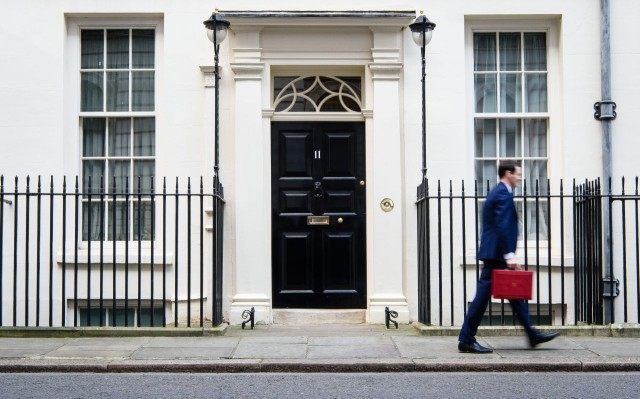British taxpayers’ contributions to the European Union (EU) budget are set to increase over the next five years, the government’s own budget documents show, forcing the British people to hand over an eye-watering £371 million a week.
City traders have dubbed the latest budget “George Osborne’s EU Referendum Bribes Budget” after the Chancellor used his speech to the House of Commons on Wednesday to campaign for Britain to remain within the European Union.
But drilling down into the budget’s supporting documents reveals that payments to the EU are set to rise year on year for the next half decade.
Buried on page 140 of the 2016 Budget, a single line in one of dozens of weighty tables shows that “Expenditure transfers to EU institutions” will total £10.5 billion in 2015/16, rising to £11.9 billion by 2020/21.
The OBR, meanwhile, forecasts that gross contributions will rise from £13.4 billion in 2014/15 to £15.4 billion in 2020/21. Although that figure doesn’t take into account the rebate, which is paid in arrears, the amount actually clawed back by the UK is subject to annual renegotiation and has already been falling year on year.
Should Britain vote to remain within the EU in June there will be very little leverage for British negotiators to demand a substantial rebate, causing further uncertainly over how much will actually be repatriated.
Overall, the OBR has estimated that Britain will pay £96.5 billion to Brussels over the next five years, equivalent to £371 million per week – more than enough to plug the funding gap in the NHS and cover agricultural subsidies and regional grant payments currently paid out by the EU.
And that figure doesn’t take into account indirect payments, such as the environmental levies insisted upon by EU legislation which are set to nearly triple from £5.9 billion in 2015/16 to £13.4 billion by 2020/21.
Little wonder, perhaps, that just two days on from the budget, Mr Osborne and the Prime Minister David Cameron are facing a rebellion from Eurosceptic members of their own party.
Matters came to a head after it emerged that a popular initiative to abolish VAT on women’s sanitary products was prohibited by EU regulations, forcing Mr Cameron to go cap in hand to his superiors in Brussels to beg them to waive the rules in this instance.
Under current rules a zero percent VAT rate can only be applied to products with the agreement of all 28 member states. On Thursday night, in a prime piece of Brussels horse-trading, his fellow leaders came to his rescue and granted the request to avoid giving pro-Brexit campaigners more ammunition.
Anne-Marie Trevelyan MP was unimpressed, however. She told the Commons: “One of the key reasons that I am voting to leave is because we are losing more and more control to the EU.
“The people we elect should be responsible for setting the taxes in this country – not unelected EU judges and bureaucrats. It is a fundamental principle of democracy that there should be no taxation without representation, which is what we now have.”
The Chancellor has also come in for major criticism after he suggested in his speech that the neutral Office of Budget Responsibility favoured a ‘remain’ vote.
He cited an OBR report which noted: “a vote to leave in the forthcoming referendum could usher in an extended period of uncertainty regarding the precise terms of the UK’s future relationship with the EU. This could have negative implications for activity via business and consumer confidence and might result in greater volatility in financial and other asset markets”
But Robert Chote, the OBR’s director, told the BBC: “Parliament has told us to produce our forecasts on the basis of current government policy and not to look at any alternatives.
“Current government policy is to stay in the EU so our forecasts are done on that basis. So we haven’t done any projections on what difference it would make if we left.”
He later told the Telegraph: “We are reporting on the weight of views that are expressed outside, we are not saying that we endorse any quantitative estimate and we are very definitely not taking a view on the long-term consequences of In versus Out.”
And he reiterated: ‘We are not attempting to quantify what the impact of the No vote will be – leaving aside the longer-term issues.”
Telegraph columnist Janet Daley scathingly observed: “this Budget was about politics and leadership (his own), not realistic economics.”

COMMENTS
Please let us know if you're having issues with commenting.